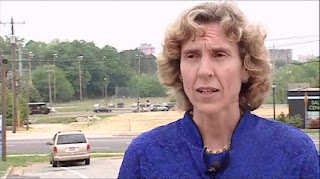
Politico----
Sen. Max Baucus moves forward with Health Care bill
Max Baucus couldn’t wait any longer.
After months of tentative steps and blown deadlines, Senate Finance Committee Chairman Max Baucus (D-Mont.) stepped away from the bipartisan health care talks Wednesday and promised to move ahead on a bill — with or without Republican votes.
Baucus faced significant pressure from the White House and his Democratic colleagues to show progress on health care reform, particularly ahead of the president’s joint speech to Congress on Wednesday. But perhaps more than any of the numerous conversations he’s had with President Barack Obama or Senate Majority Leader Harry Reid (D-Nev.) about the urgency of producing legislation, the dwindling number of weeks left this year to pass a bill of this magnitude ultimately forced Baucus’s hand.
In essence, the calendar made him do it.
“Sometimes deadlines force decisions,” Baucus said.
Baucus said he will release a bill next week and start a committee markup the week of Sept. 21. The bipartisan talks will continue, and he said he still hoped for Republican votes — but he would move ahead with a bill either way.
“The time has come for action, and we will act,” Baucus said. “We are going to get this bill done by the end of the year.”
Baucus’s bill has taken on an almost outsize importance in the health care debate — because many insiders believe it could provide the blueprint for a final compromise. But there is a long way to go.
Consider the steps that Democrats still have to climb: After the Finance Committee approves a bill, Reid and a handful of other senators will need to merge it with the Senate Health, Education, Labor and Pensions Committee bill. And there is a significant difference that Reid will have to bridge: whether to send a bill to the Senate floor that would create a public insurance option or a network of consumer-owned cooperatives. It will be the first time the Democratic leadership, most likely with Obama’s input, will have to choose between the two options that have divided their party.
After the merger, the Senate is expected to take about two weeks to debate the bill. The House, which has been reluctant to act until the Senate showed movement, will also need to take up the bill.
And after the Senate and the House vote, there is a conference committee, which by all accounts is where many of the hard negotiations will take place — and could take some time.
“Everybody underestimates how much the calendar dictates things,” a senior Senate aide said.
As expected, the president touted the move — and the progress shown in four other congressional committees — as historic in his speech Wednesday to Congress.
“Of the five committees asked to develop bills, four have completed their work, and the Senate Finance Committee announced today that it will move forward next week,” Obama said. “That has never happened before. Our overall efforts have been supported by an unprecedented coalition of doctors and nurses, hospitals, seniors’ groups and even drug companies — many of whom opposed reform in the past. And there is agreement in this chamber on about 80 percent of what needs to be done, putting us closer to the goal of reform than we have ever been.”
White House aides welcomed the move, which was described as a way to break the gridlock and get the bill moving.
“The president has been talking to Chairman Baucus throughout this process, and I think he’s gratified by the news today,” White House senior adviser David Axelrod said.
Asked if the president pushed Baucus toward the deadline, Axelrod said: “I think that, um, they share a sense of urgency; let’s say that.”
From a political standpoint, Baucus’s move was as much about boosting the president as it was about himself. Since late July, the White House and the rest of Congress waited on Baucus as four other committees with jurisdiction over health care passed bills.
Baucus faced questions about his leadership and political will if he allowed the talks to go on indefinitely, particularly after the August recess, when Sen. Chuck Grassley (R-Iowa) and Sen. Mike Enzi (R-Wyo.) repeatedly railed against the president.
None of the three Republican senators involved in the bipartisan talks indicated Wednesday that they would leave the negotiations. Baucus said he expects to continue the talks through next week, and he has received proposed changes from the three members.
“I think he feels a great deal of pressure to move on, and I think I have to respect that pressure,” Grassley said.
In an interview, Grassley said he wanted the bill to address medical malpractice reform, among other issues. He said he would continue to negotiate but said he couldn’t say whether he would support the Baucus plan.
“What I have always said is, we have been at the table for months and months, and there has never been a harsh word — and I am going to be at the table for as long as I can be at the table,” Grassley said.
Baucus’s proposal does not include a public health insurance option but features insurance cooperatives to compete with private insurance companies. The $900 billion plan also includes a requirement that individuals have health insurance or face fines. And it includes a new tax on insurance companies that offer high-cost plans.
Despite discussion in the media about the possibility of creating a “trigger” on the creation of a public plan, Baucus said there has been no discussion of such an idea within the Gang of Six. Baucus also said he believes with “increasing conviction that a public option cannot pass the Senate.”
The plan includes several elements that appear targeted at winning support from the three Republicans and are likely to face resistance from Democratic members of the Finance Committee.
Sen. John Rockefeller (D-W.Va.) said the proposal includes some elements that no Democrats have supported, including giving states the flexibility to alter Medicaid benefits and allowing insurers to sell plans across state lines.
“There is a lot in there to worry about,” Rockefeller said.
View Larger Map
Sources: Politico, Whitehouse.gov, Google Maps




































































.jpg)























No comments:
Post a Comment